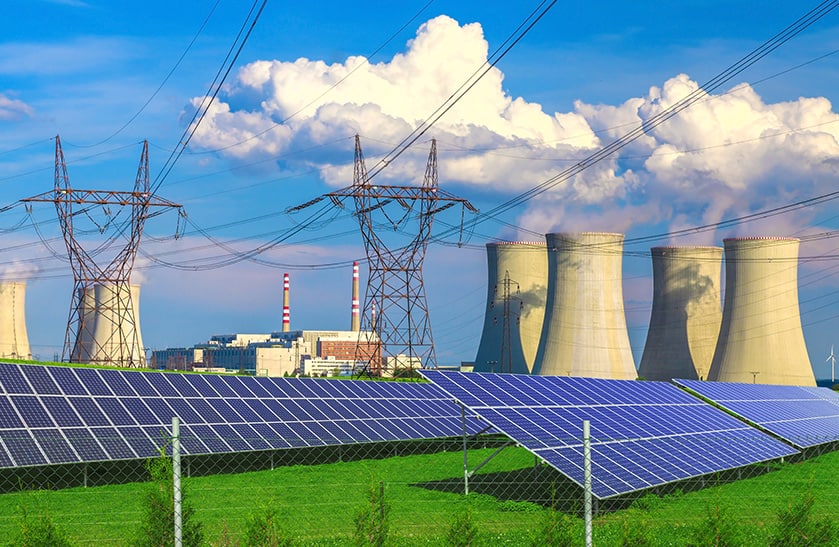
President Jokowi affirmed Indonesia’s continued commitment to achieve nationally determined contribution targets and control over greenhouse gas emissions, announcing that he had signed Presidential Regulation No. 112 of 2022 on the Acceleration on the Development of Renewable Energy for Electricity Supply that took effect on 13 September 2022 (New Regulation).
The introduction of the New Regulation is the next step in Indonesia’s plan to increase investment and accelerating the achievement of targets in national grand energy strategy and control over greenhouse gas emissions.
Key features of the New Regulation are as follows:
1. No New Coal Plants in Indonesia in Another Bid to Cut EmissionsThe New Regulation states no new coal power plants can be built, but those that are already in the pipeline and those that are integrated with the natural resources processing industry will be allowed to proceed as planned.
According to the New Regulation, investors can still develop new coal power plants under certain conditions: if the plants will power refineries or metal smelters, if they’re nationally strategic projects, or if they can commit to cutting greenhouse gas emissions by 35% within ten years of operation.
2. Early RetirementReconfiguring the electricity system to address this issue is important for investors. For this, the Ministry of Energy have been instructed to create a plan for early retirement of coal power plants and the government could help fund early coal retirement and replace them with renewable plants, using state budget.
3. Incentives for Renewable EnergyTo encourage investment in renewable energy, the government sets a new pricing system in the New Regulation for each source of renewable energy. This is an improvement as investors previously had to go through a long negotiation with the National Power Utility (PLN) to reach a pricing agreement. The government will also give clear guidance and transparent procurement processes on renewable energy projects, facilitate stimulus packages, and encourage green energy initiatives.
As the world’s largest exporter of coal, Indonesia aims to increase the proportion of renewables in its energy mix to 23% by 2025 but holding at 12% so far. Energy demand across the country’s more than 17,000 islands could triple between 2015 and 2030.
Investments in renewable energy have accelerated rapidly in Indonesia. However, the Ministry of Energy projecting that USD 37 billion would be required by 2025 to reach the 23% target, the country now needs to invest over USD 8 billion each year. Private investment continues to play a central role to fund power generation expansion plans, therefore investing in Indonesia’s renewable energy sector offers a promising opportunity.
The benefits of the New Regulation would greatly remove roadblocks to mobilise private investment in renewable energy as the government takes concrete measures to attract private investments in low-carbon energy and meet its net-zero climate goals. Above all, the New Regulation makes it crystal clear that coal power plants are now prohibited in Indonesia. Investment in the renewable energy sector in Indonesia is the alternative.

Daniel Lubis
Principal
RHTLaw Asia
daniel.lubis@rhtlawasia.com
+65 6381 6835
Daniel is an experienced lawyer who specialises in advising on energy and natural resources, as well as TMT transactions in Singapore and the region, with a focus on Indonesia. He is a qualified lawyer in Indonesia.

RHTLaw Asia is a member of ONERHT, an integrated network of multidisciplinary professional and specialist services which empowers stakeholders to achieve purposeful growth.
© 2024 RHTLaw Asia LLP. All Rights Reserved.
| Cookie | Duration | Description |
|---|---|---|
| cookielawinfo-checkbox-analytics | 11 months | This cookie is set by GDPR Cookie Consent plugin. The cookie is used to store the user consent for the cookies in the category "Analytics". |
| cookielawinfo-checkbox-functional | 11 months | The cookie is set by GDPR cookie consent to record the user consent for the cookies in the category "Functional". |
| cookielawinfo-checkbox-necessary | 11 months | This cookie is set by GDPR Cookie Consent plugin. The cookies is used to store the user consent for the cookies in the category "Necessary". |
| cookielawinfo-checkbox-others | 11 months | This cookie is set by GDPR Cookie Consent plugin. The cookie is used to store the user consent for the cookies in the category "Other. |
| cookielawinfo-checkbox-performance | 11 months | This cookie is set by GDPR Cookie Consent plugin. The cookie is used to store the user consent for the cookies in the category "Performance". |
| viewed_cookie_policy | 11 months | The cookie is set by the GDPR Cookie Consent plugin and is used to store whether or not user has consented to the use of cookies. It does not store any personal data. |